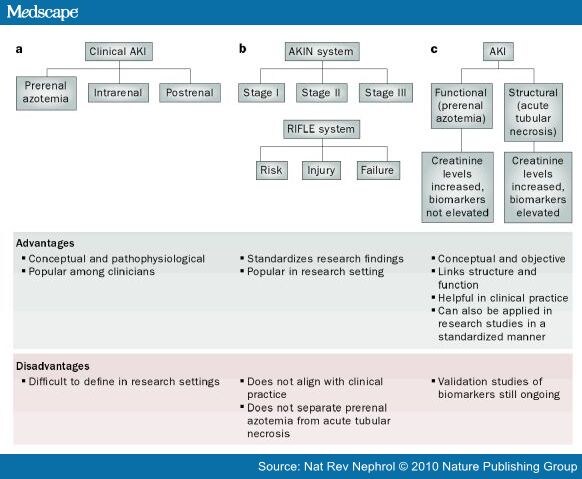Azotemia
As azotemia - from Greek azoton (nitrogen) and haima (blood) - refers to the abnormal proliferation of nitrogenous end products of protein metabolism ( balance nitrogen ) in the blood. It is primarily to an increase of urea nitrogen and creatinine, as well as uric acid, phenols, amines and guanidine are increased.
- In particular, in uremia this increase can be observed as Retentionsazotämie.
- A Produktionsazotämie comes with reduced protein production or increased protein degradation - such as after burns, radiation therapy, a crush syndrome - about.
The division can also called renal - tion from Latin ( kidney) - or prerenal azotemia take place, which means that the causes of the rise of these urinary excreted substances in the kidney itself, or are looking to " in front of the kidney ." A renal azotemia is signs of renal failure.
As hypochloremic azotemia a dehydration ( dehydration ) is called with a simultaneous lack of blood salts, such as may occur in severe cases, diarrhea and vomiting, a diabetic coma or Addison's crisis.










